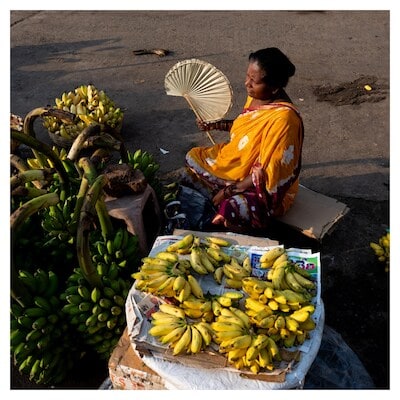[ad_1]
Monetary policy needs to take a cautious approach if food inflation persists, as such shocks may not be transitory and could spill over into generalised inflation, a report titled ‘Are Food Prices Spilling Over’ authored by Reserve Bank of India deputy governor MD Patra and others, said.
“Monetary policy is the only active disinflationary agent in the economy. Going forward, therefore, if food price pressures persist and continue to spill over, a cautious monetary policy approach is warranted,” the report said.
The report noted that the conventional treatment of food price perturbations as transitory in the setting of monetary policy is increasingly becoming untenable. “A large part of this increase in persistence is driven by the secular upward drift in food inflation expectations,” it said.
Observing that high food inflation has become endemic in the 2020s, the authors said that in a staggering 57 per cent of months between June 2020 and June 2024, food inflation was at or above 6 per cent, with around 6 out of 12 food sub-groups experiencing 6 per cent and above inflation for 50 per cent or more of these months.
“This attests to the broad-based nature of high food inflation persistence,” it said.
The report highlighted that in the last few months, food price pressures have become unrelentingly persistent even as core inflation has fallen to historic lows, steered by disinflationary monetary policy. As a result, the report argued, there is a danger that the beneficial effects of lowering core inflation could be frittered away.
“High food inflation is seeping into households’ inflation perceptions and expectations, with the potential for spillovers into non-food prices,” the report said, adding that food inflation is impeding the alignment of headline inflation with its target in India and can no longer be tolerated in setting monetary policy.
Among the reasons for persistent food price shocks, according to the report, are the incidence of multiple overlapping supply shocks due to climate events in the more recent period that impacted the spatial and temporal distribution of monsoons, induced sharp increases in surface temperatures, and caused unseasonal rainfall. Global climate systems, including the triple-dip La Niña event and El Niño conditions seen since 2020, also played a role, it said.
The report noted that food inflation was averaging 6.3 per cent during the 2020s, which is a stark contrast to the period 2016-2020 when it averaged just 2.9 per cent.
First Published: Aug 19 2024 | 7:13 PM IS
[ad_2]
Source link

